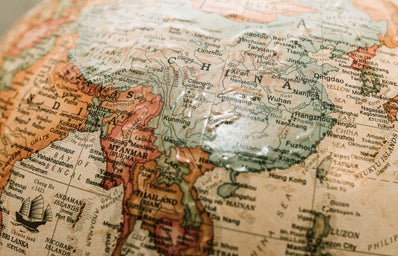North and South Korea recently conducted ballistic missile tests within hours of each other in a concerning move that indicates a burgeoning arms race between the two nations. On Tuesday 15 September, North Korea launched two ballistic missiles across its East coast into the sea, prompting South Korea’s choice to test a submarine-launched ballistic missile just hours later.
The launches followed North Korea’s Monday announcement that it had successfully tested new long-range cruise missiles over the weekend. According to North Korea’s Korean Central News Agency, the missiles flew for over two hours before hitting targets 1,500 kilometers away. While the United Nations Security Council has passed resolutions banning North Korea from testing and developing ballistic missiles, there are no current bans against cruise missile development. However, cruise missiles can be lethal due to both their ability to evade defence systems and their potential to carry nuclear warheads. North Korea’s recent cruise missile test and its following ballistic missile tests have emphasized the nation’s rush to develop heightened weapons capabilities.
The tests highlight that North Korea has continued to develop its weapons program as nuclear disarmament talks with the United States remain halted. The negotiations regarding U.S.-sanctioned relief in return for North Korea’s dismantlement of its nuclear and ballistic weapons arsenals have been stalled since 2019, leaving room for North Korea to further progress its weapons developments and grow its arsenal in the meantime.
Japanese and South Korean militaries stated that the two missiles launched by North Korea landed within Japan’s exclusive economic zone, yet outside of its territorial waters. Yoshihide Suga—Japan’s Prime Minister—labeled the tests “outrageous” and a threat to stability and peace within the region.
Diplomatic talks between the North and South remain unlikely, unless conditions change. Kim Jong Un’s sister and an influential North Korean politician, announced in a statement on Friday that talks would only resume with the South if Seoul dropped its “hostile” attitude and convinced the United States to cease its current economic sanctions against North Korea. The US-led economic sanctions were increased in 2016-17 after a series of ballistic and nuclear tests conducted by North Korea. Since then, the sanctions have yet to be lessened, and diplomacy has faltered as talks with the West have been put on hold.
While the recent ballistic missile tests indicate increasing diplomatic and military tension within the peninsula, there remains hope that North and South Korea can reach an agreement through diplomatic proceedings. The opportunity for credible diplomatic initiatives remains open, and the United States’ involvement, in regards to altering its sanctions against the North or stepping in as a mediator, could transform the current tension. The new tests have certainly been a troubling development for international relations, but the progress of negotiations within the next few weeks will further indicate whether the threat of an arms race will escalate between North and South Korea.


